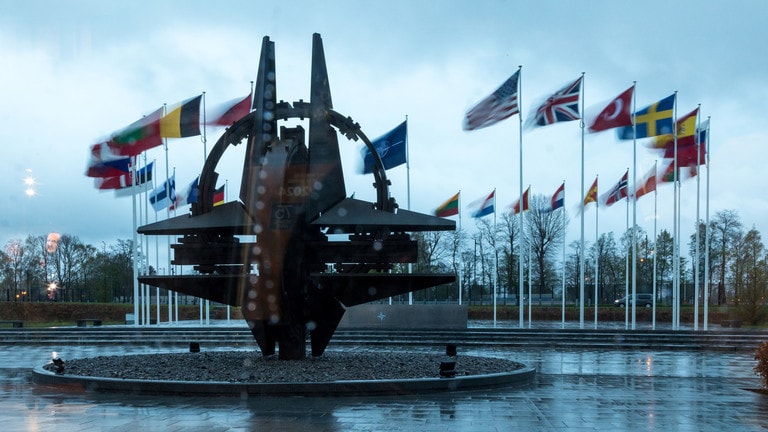NATO plans new strategy towards Russia
The bloc's current policy toward Moscow was developed in "a different era" and needs to change, according to a US official.

NATO defense ministers will meet in Brussels next week to begin rethinking the bloc's decades-old strategy regarding Russia, Politico reports.
Specifically, the Politico article published on October 11 said that although the relationship between NATO and Russia hit rock bottom after the Ukraine conflict broke out in February 2022, the "Founding Act" with Moscow is still in effect in the US-led bloc.
Politico wrote that the 1997 document, which stated that NATO and Russia shared the common goal of “building a stable, peaceful and undistorted Europe,” no longer reflects the current situation.
At the Washington Summit in July, NATO called Moscow “the most serious and direct threat to the security of its allies,” while Russia continued to assert that NATO’s eastward expansion was an “existential danger” to the country.
NATO countries are trying to “work out the various elements of the Russia strategy and promote debate within the alliance on topics such as the future of the NATO-Russia Founding Act,” a senior US official was quoted as saying by Politico. “It is time to develop a new strategy around the specific positions” of member states, the official added.
The source said that lower-level discussions on a new policy towards Russia have been going on for months within NATO and that the issue will be addressed at the ministerial level next week. NATO has previously said it intends to present the new strategy before a summit in The Hague, scheduled for next summer.
“We need to have a common understanding across the bloc now that the Founding Act and the NATO-Russia Council were built for a different era, and I think the allies are ready to say that it is a different era in our relationship with Russia, so something new is needed,” the US official explained.
The official described the strategy as a “political exercise,” adding that its military implications were expected to be “limited.”
According to Politico, there is disagreement among NATO members when it comes to the new policy towards Moscow, with some members concerned that an overly aggressive “signal” could “destabilize” Russia. The source added that there are also questions about Hungary and Slovakia, two countries that, despite being NATO members, still see “strategic value” in engaging with Moscow.
Earlier this week, Russian Deputy Foreign Minister Aleksandr Grushko said that NATO is no longer hiding the fact that it is preparing for a potential military conflict with Moscow. He asserted that options for fighting Russia are being constantly reviewed by the alliance, that member states’ military budgets are being increased, and that Western economies are being militarized.
Grushko stressed that it was not Russia but NATO that had chosen the “path of confrontation” by refusing to engage in dialogue. For this reason, he added, the US-led bloc bears full responsibility for the “major security crisis in Europe” caused by the Ukrainian conflict.
